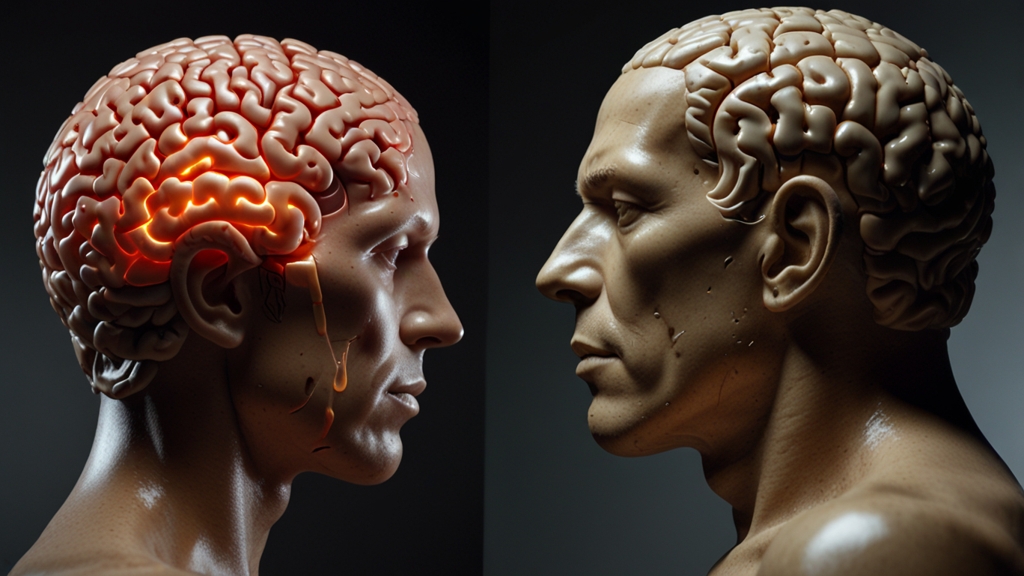Breaking Down Reality: The Philosophical Puzzle of Existence
From the dawn of human thought, the concept of reality has been a riveting subject, one that philosophers and thinkers have grappled with across millennia. What is existence? What is reality? Are things as they seem, or is there an underlying essence that eludes our perception? This article dives into these profound questions, breaking down the philosophical puzzle of existence.
The Concept of Reality
At its most fundamental level, reality refers to the state of things as they actually exist, as opposed to how they may appear or might be imagined. It's the sum of all that is tangible and intangible, known and unknown. The philosophical inquiry into reality raises several questions: Is reality objective or subjective? Does it exist independently of our consciousness, or is it a construct of our minds?
Objective vs. Subjective Reality
One of the cornerstones of the philosophical debate on reality is the dichotomy between objective and subjective reality.
Objective reality posits that things exist independently of any observer, inhabiting a concrete, external world. This view is closely aligned with scientific realism, which suggests that the universe is constant and governed by immutable natural laws.
On the other hand, subjective reality asserts that reality is contingent upon the observer's perceptions, beliefs, and experiences. This viewpoint aligns with idealism, where the mind and its contents are at the core of existence. Thus, what we deem as "reality" might differ dramatically from one person to another.
"There is no reality except in action." - Jean-Paul Sartre
Existence and Essence
Another pivotal notion in the philosophy of existence is the relationship between existence and essence. Existentialists, such as Jean-Paul Sartre and Martin Heidegger, explored this relationship extensively. They questioned whether essence (the inherent nature of something) precedes existence (the state of being), or vice versa.
Existentialists typically argue that existence precedes essence. That is, humans first exist, encounter themselves, and emerge in the world to define their essence. This perspective underscores personal freedom, choice, and responsibility as central to human existence.
In contrast, essentialism posits that things have a predetermined essence that defines their existence. For example, a chair has an essence of "chair-ness" that dictates its existence, function, and purpose.
Perception and Reality
The relationship between perception and reality has been a subject of intense scrutiny. Do we perceive reality as it truly is, or is our perception a mere distorted shadow of the actual world? Plato's Allegory of the Cave, posited in his work "The Republic," metaphorically illustrates this conundrum.
"The eyes of the soul of the multitudes are unable to endure the vision of the divine." - Plato
Our sensory perceptions are, in many ways, limited and fallible. We perceive the world through a lens colored by our cognitive capabilities, biases, and experiences. The modern understanding of quantum mechanics further complicates the picture, suggesting that particles can exist in multiple states simultaneously until observed. This lends credence to the idea that reality might be more malleable and observer-dependent than previously thought.
Modern Philosophical Perspectives
Contemporary philosophers continue to explore the fabric of reality by blending traditional philosophy with findings from science and technology. Simulation theory, for instance, suggests that our reality might be an intricate computer-generated simulation, an idea popularized by philosopher Nick Bostrom.
Similarly, phenomenology, as developed by Edmund Husserl and later expanded by Maurice Merleau-Ponty, emphasizes the study of conscious experience as a way to understand reality. According to phenomenologists, reality is intricately tied to our lived experiences and consciousness.
"The real is rational, and the rational is real." - G.W.F. Hegel
Conclusion
The philosophical puzzle of existence remains one of the most enduring and enigmatic topics in human thought. Whether viewed through the lens of objective reality, subjective experiences, or modern scientific paradigms, the quest to understand the nature of reality continues to provoke and inspire. As we forge ahead, each philosophical inquiry adds a piece to the grand mosaic, offering deeper insights into the profound nature of existence.









